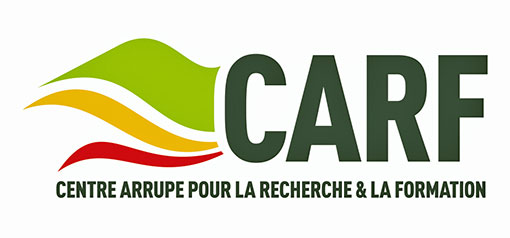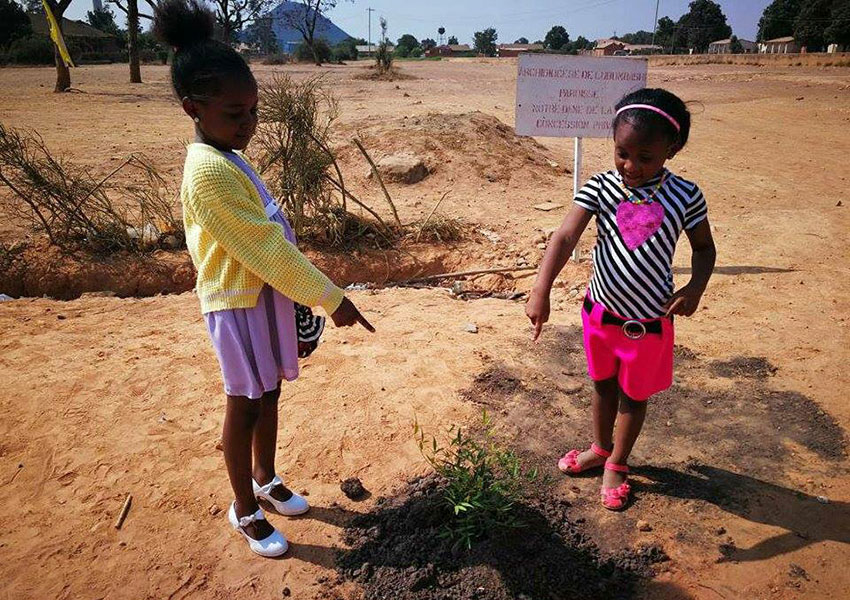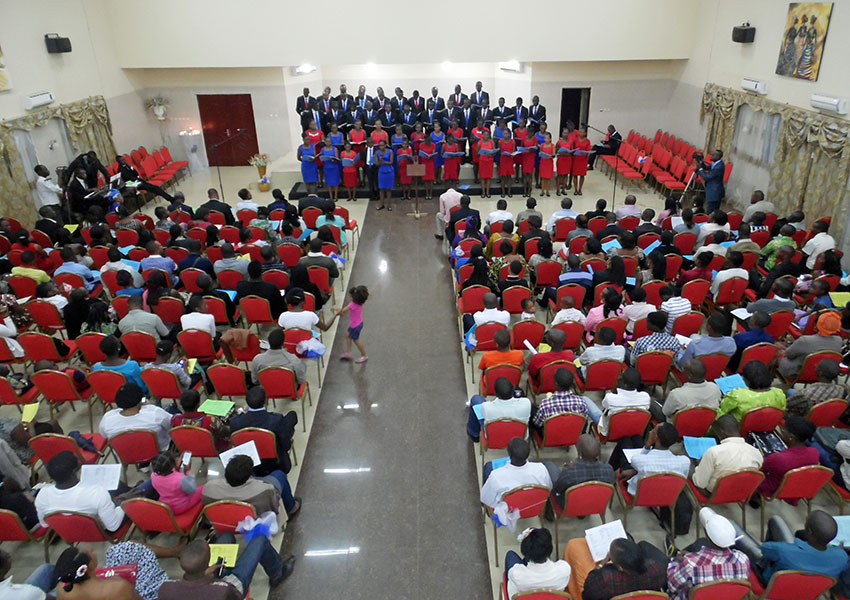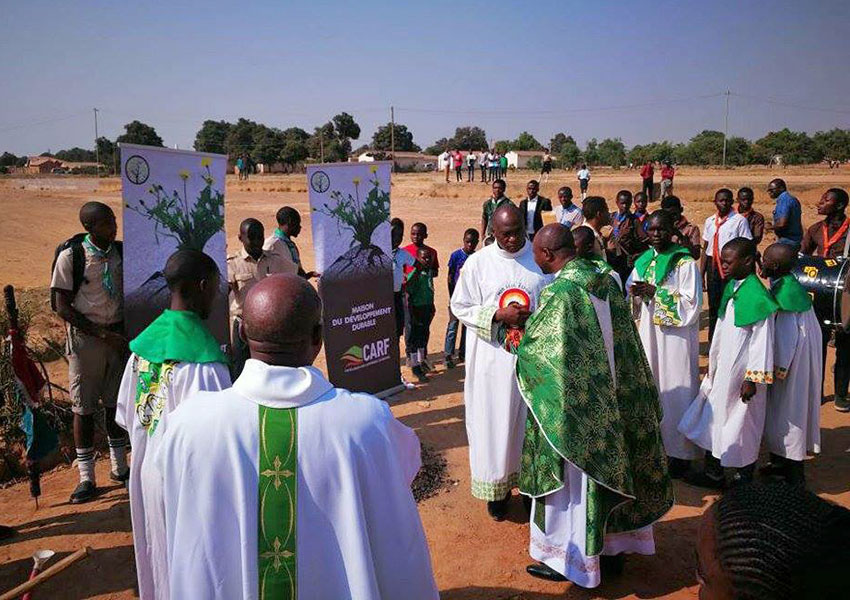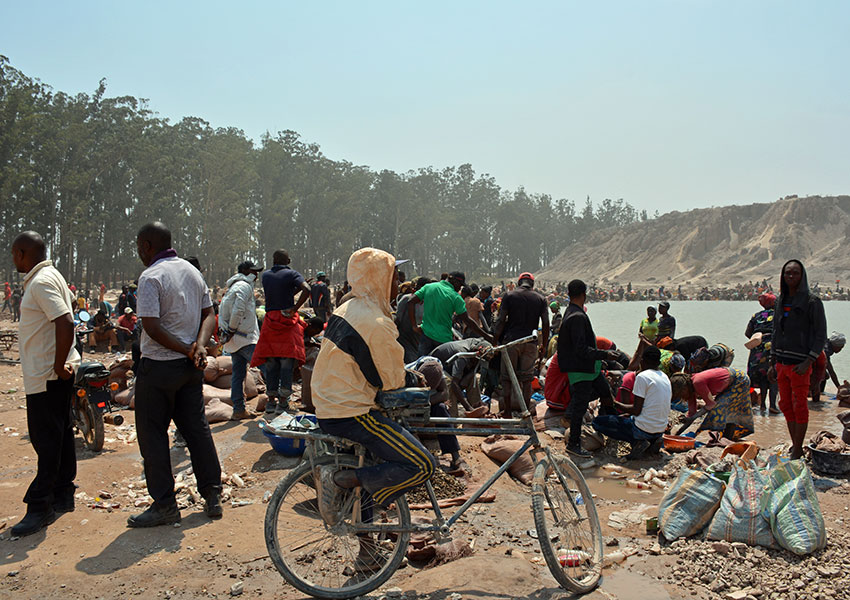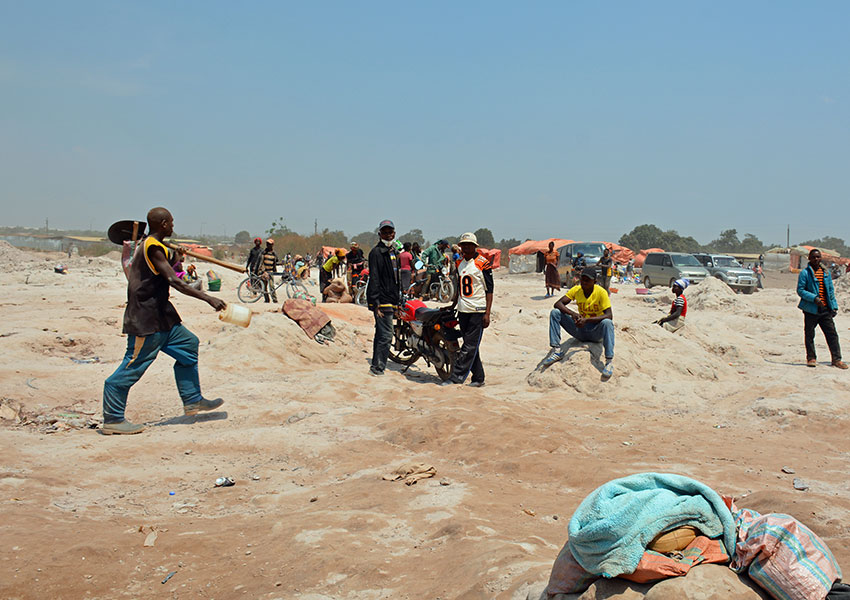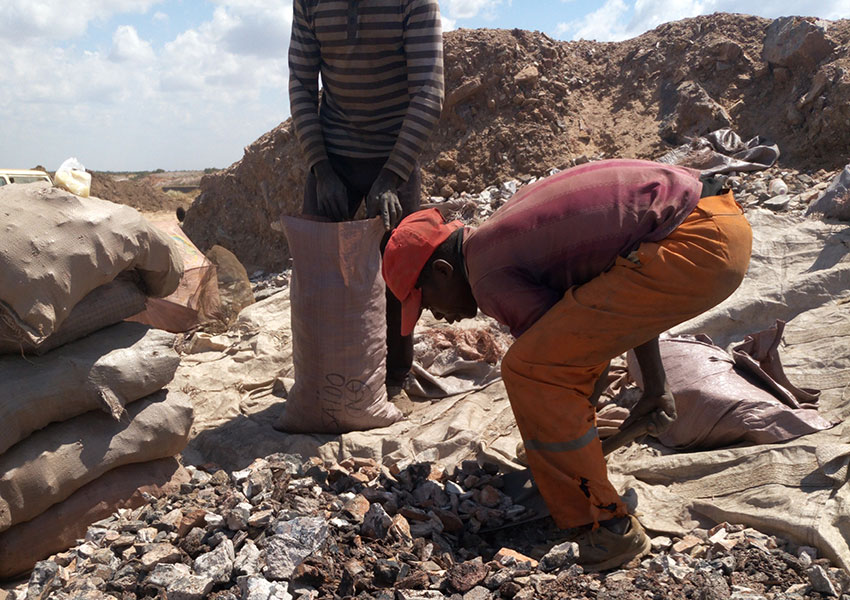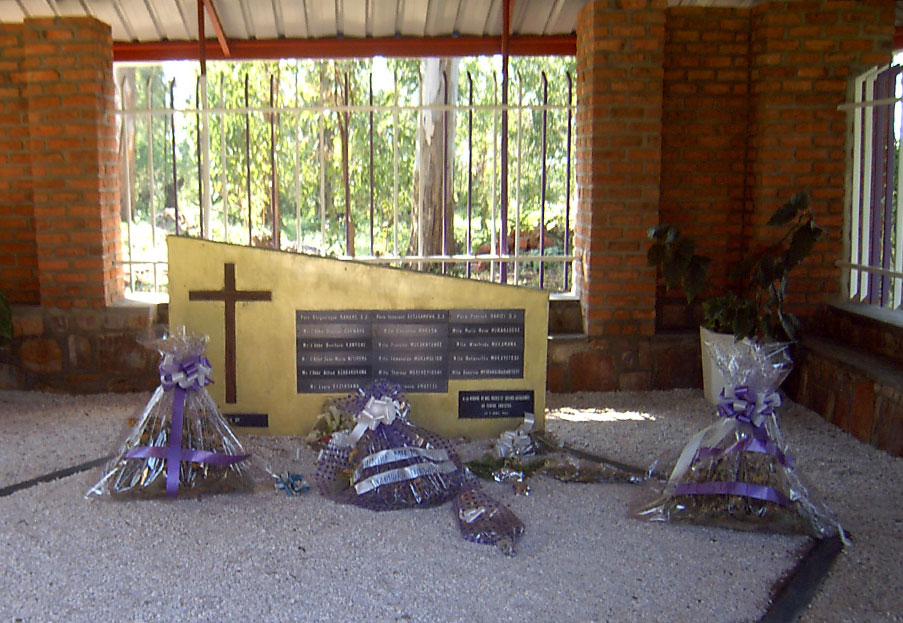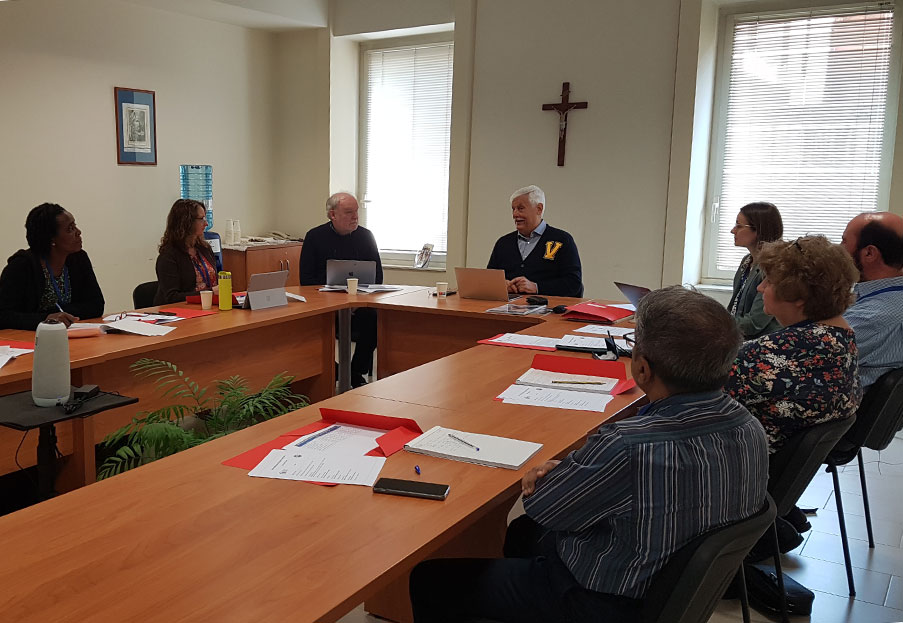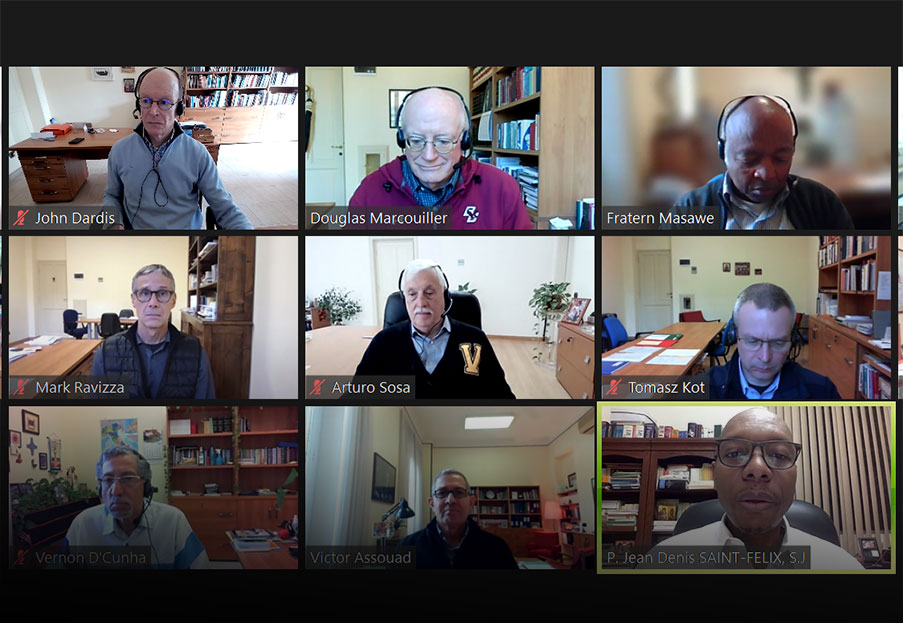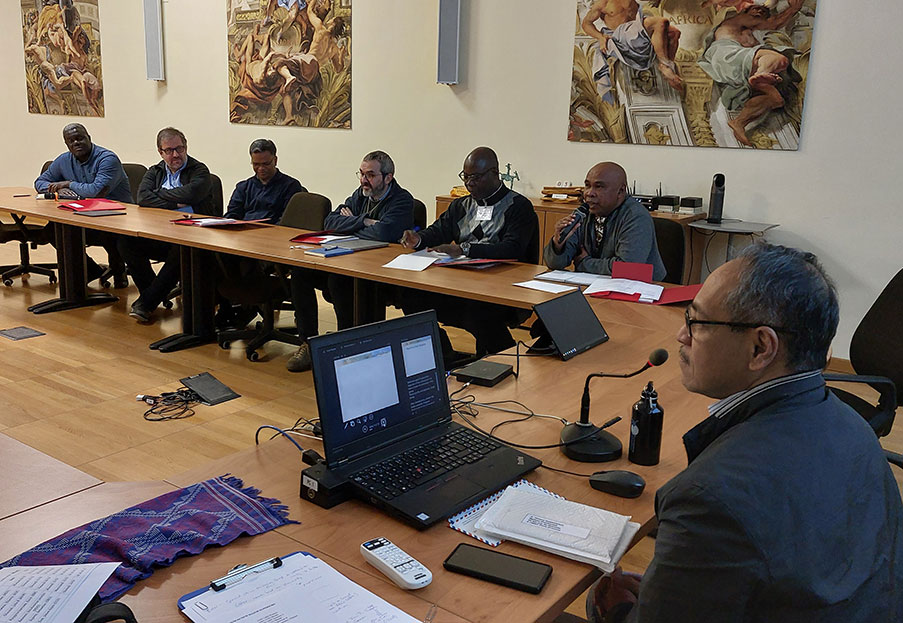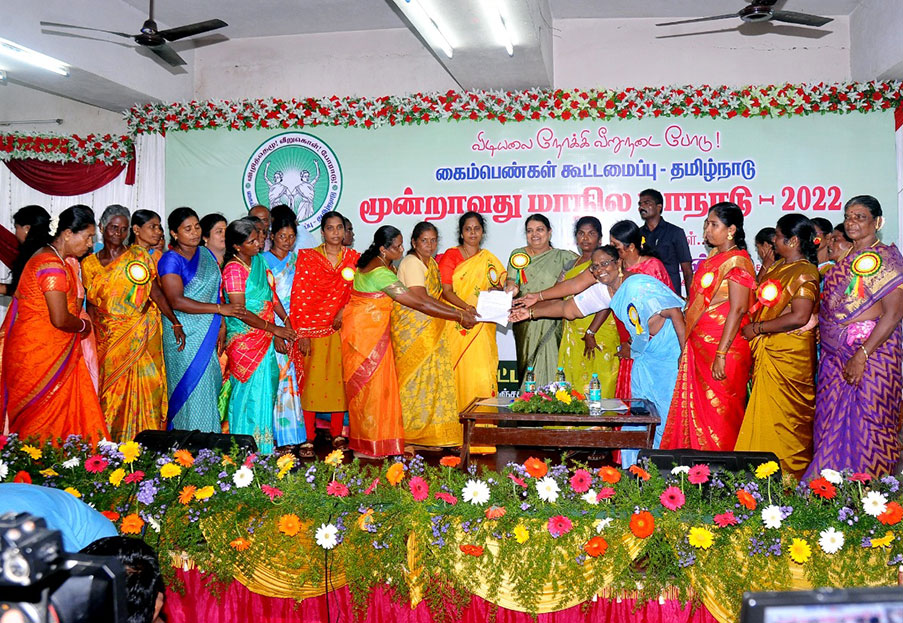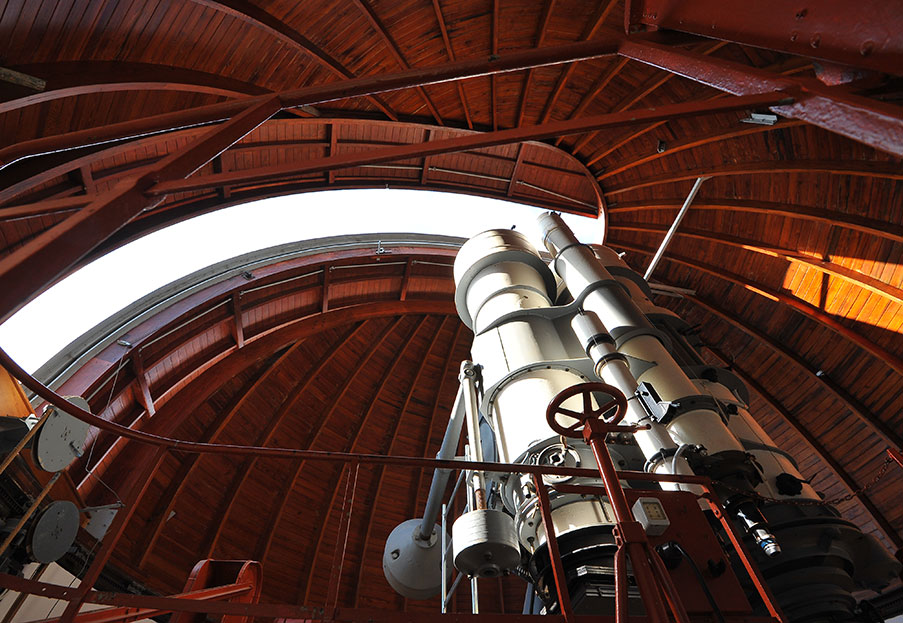Discern, protect, accompany, safeguard
The Arrupe Centre for Research and Training, Lubumbashi, DRC
By Jean Nyembo Ngoy, SJ
[From “Jesuits 2021 - The Society of Jesus in the world”]
At the coming together of the Universal Apostolic Preferences (UAPs)
Created in 2013 and based in Lubumbashi (Upper Katanga), the focal point of mining activity, the Centre Arrupe pour la Recherche et la Formation (CARF – Arrupe Centre for Research and Training) participates, with its Christian standpoint, in the efforts for human and social development in the South-East of the Democratic Republic of Congo (DRC). In this era of new Preferences, and with their help, CARF once again hears the cries of today’s world. Jesuits and lay people, men and women, teachers and activists, collaborate in furthering a discernment that protects the outcasts, that accompanies young people and that helps to safeguard the earth, the common home of our humanity.
With the UAPs in mind, joining research and training
Through its research work, CARF brings to light
the shortcomings of Congolese society, so full of societal, economic and
political unfairness. Thanks to the training courses it offers, the Centre
seeks to address these shortcomings adequately. Research and training is built
around three axes: “faith, justice, peace and reconciliation,” “development
aid,” and “governance of natural resources.” The Monsignor Munzihirwa Library,
which is open to the public, is of great help to us in technical matters
because of its wide range of resources in key areas such as economic,
political, social and legal sciences.
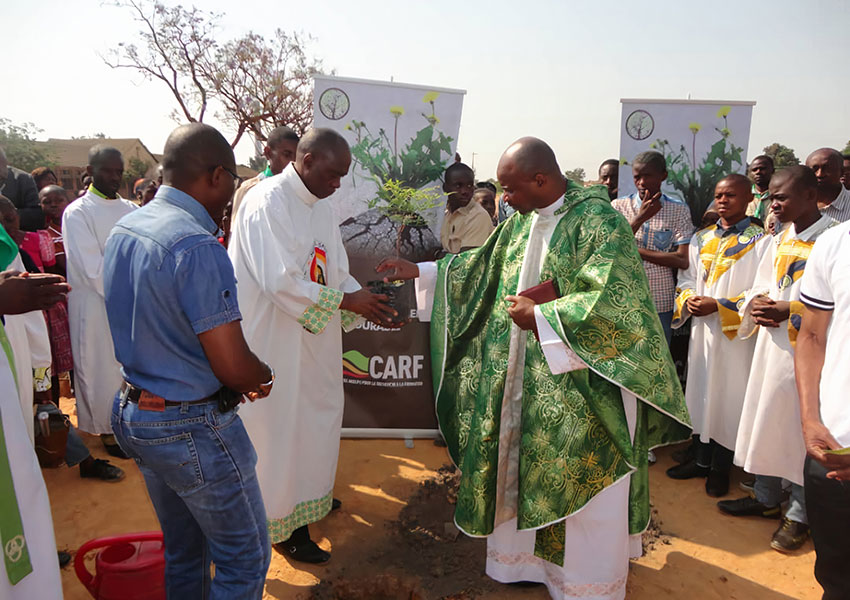
Faith, justice, peace and reconciliation
Within CARF, the platform called “Bâtisseurs de la Paix” (Builders of Peace) specializes in strategic research for lasting peace. Through shared dialogue, the different social actors are given the chance to look for avenues to stabilize and consolidate the structures of the State.
The “Motivational Talks” focus on the aspects of sustainable development and solidarity, cornerstones of true peace. These are monthly meetings aimed at young people, students or job seekers with the goal of sharing experiences and learning. There is a wide variety of conferences and seminars: film forums, morning business meetings, fashion and style shows, art and music workshops.
The so-called “CARF Forum,” another activity of this department, is an annual meeting on current issues open to business men and women, public and private companies, scientists and students who wish to boost the effectiveness of their discussions.
In this context, there are also proposals directed towards the art of spiritual discernment, within the framework of socio-political and theological stimulation, as a path to social liberation.
Development aid
Through CARF’s “House of Sustainable
Development,” particular importance is placed on ecology: a sustainable
development at the local and global levels is sought, which integrates justice
by constantly moving towards a more ecological and brotherly society. In so doing,
CARF collaborates in the harmonious growth of associative movements, political
bodies and businesses. Courses in economics (accounting, entrepreneurship and
business management, ethics and leadership), communication (English, computer
science), civic culture (civility, elections, democratic processes) and
Ignatian pedagogy are made available as part of the training offer.
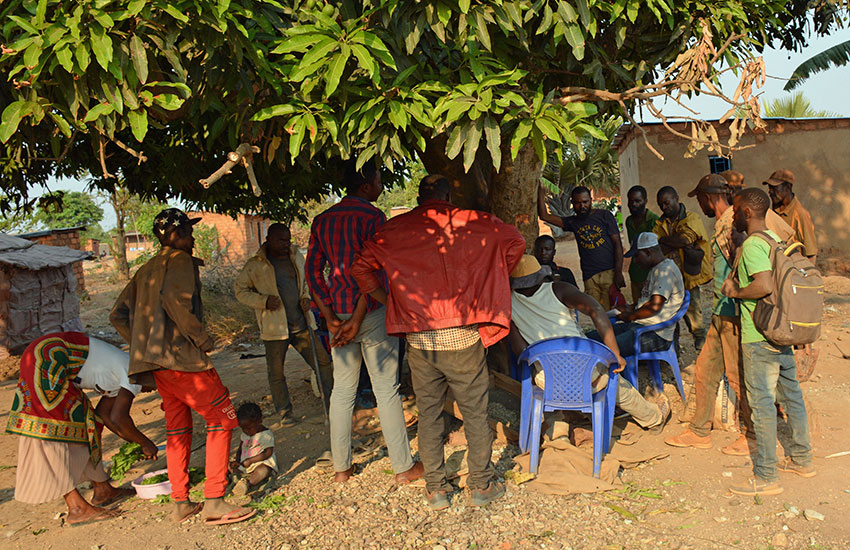
Governance of natural resources
A special and strategic collaboration with organizations such as Misereor and Alboan supports our on-site research projects, especially those dealing with governance and the furthering of excluded, vulnerable social groups. CARF is in direct contact with the communities affected by industrial mining activity, acting as a “body of social and political influence,” and working for transparency, responsible management and social accountability of mining companies. To survive, these communities have no choice but to turn to small-scale mining labour, yet their hazardous working conditions and their low production do not help in bettering their quality of life. CARF backs them in their efforts by looking into alternatives to mining, coming up with training for men and women who wish to take part in the shift from traditional to small-scale mining and/or industrial mining.
Our training program is based on strategic research in mining mapping, the social responsibility of businesses, mining and human development, economic and social rights of communities, conflict minerals, certificates and traceability.
Moreover, for a year now, CARF has been
connected to the different traditional mining locations through a computing
platform. As a result, warnings of abuses and human rights violations that
impact people working in the chain of small-scale mineral quarrying or trading
are received in real time. The platform also highlights the quarries that do
what is right. Thus, all the information gathered and analysed allows fostering
prevention and social conflict resolution actions, and gives CARF the
opportunity to have a more objective impact.
A dream that brings to mind the UAPs
The complex and unstable history of the DRC is
still a great challenge. To face it, CARF wants to be a prophetic voice. Its
actions lie within the framework of a fundamental aspiration sung in the
Congolese national anthem: “A great people...!” A great people, yes, but one
that scrutinizes the signs of God in its history thanks to a discernment
nourished by the Gospel. A great people that digs deep to the lowest depths to
reach out to those that history has left out of its pages. A great people with
a liberated and fulfilled youth. A great people who care for the land they have
inherited, and which it is their duty to safeguard.
CARF Lubumbashi
VISIT